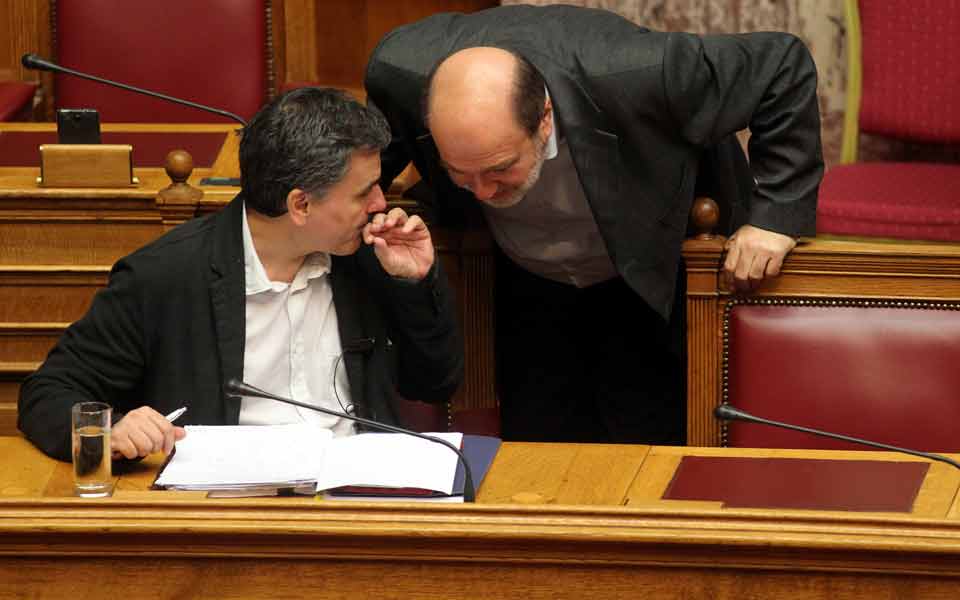All issues with creditors remain open

Negotiations between Athens and the country’s creditors will continue from a distance for the next couple of weeks with November 14 as the reference date, as that is when the heads of the creditors’ representatives will return to Greece. The aim is that up until November 14 significant progress will be made in matters relating to the second review so the process can be wrapped up by the end of next month.
Of course that is the good scenario, as there is always the risk that the negotiations will last much longer and the government will again find itself rushing to complete the review by the end of the year, settle the issue of the national debt and conclude the talks regarding the International Monetary Fund’s role in the bailout program.
The first round of talks on the second review was completed on Thursday with no issues closed and several matters pending on all fronts of the creditors’ inspections.
Four main issues are outstanding on the fiscal front. The first concerns the financing of the Solidarity Social Income, with Athens claiming it is secured for 2017 and that for 2018 there is a 400-million-euro gap to be covered by the spending review across the public sector. The creditors, on the other hand, see problems both for 2017 and 2018, and cite a World Bank proposal for reducing the tax-free threshold to 5,000 euros per annum – which the government will not discuss.
The second issue regards the 2017 forecasts, with the creditors asking for more data following the revision of the figures for 2015 and the failure to slash defense spending. The third is about the midterm fiscal plan, with Athens insisting on reducing the primary surplus target for 2019 from 3.5 percent of gross domestic product to 2 or 2.5 percent, but the creditors are not discussing that. The final fiscal issue on the table is the special salary system for civil servants that is supposed to apply as of January 1, 2017.
Other open fronts are the labor issues – where there is considerable distance between the creditors and Labor Minister Giorgos Katrougalos – and the management of bad loans, where the main difference is as to whether there could be a haircut on companies’ dues to the state.





